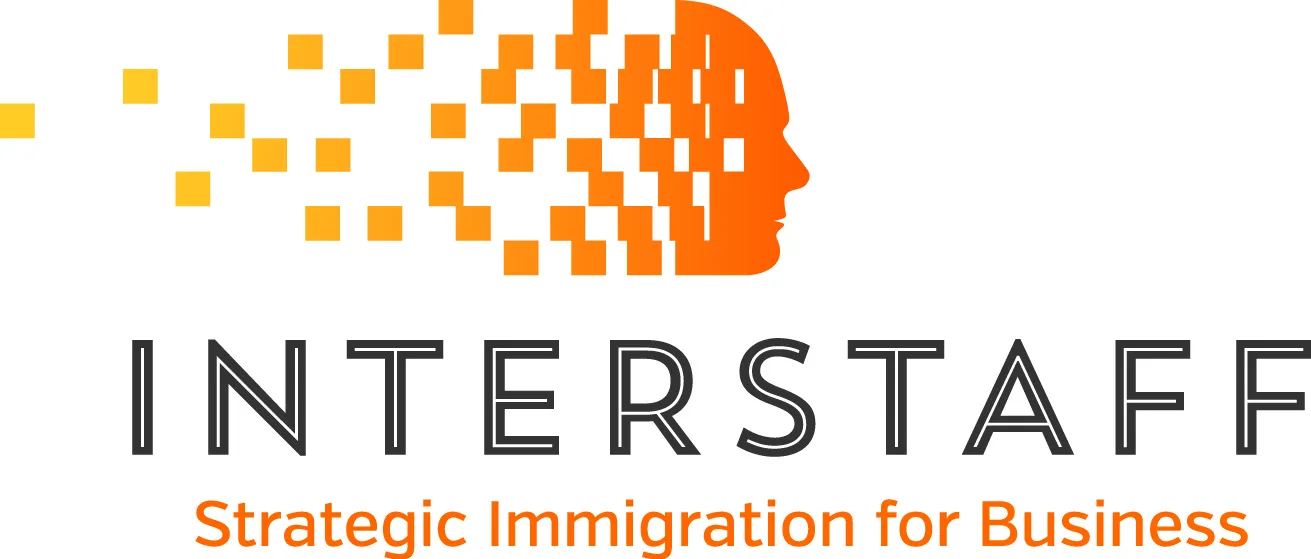How Australia’s Migration Settings Should Change | The Productivity Commission’s Recommendations

How should the government change skilled migration settings? According to The Productivity Commission, immigration can play a significant role in maximising Australia’s productivity indicators, such as higher wages and economic growth. It can do so by attracting in-demand skills and knowledge, allocating labour to where it is most needed and by sharing best practice from overseas – but only if the migration settings are right.
Written by Sheila Woods (MARN: 0533879) of Interstaff 20 April, 2023
This month, The Productivity Commission released the final report of its 5-year Productivity Inquiry, with part of it dedicated to examining Australia’s labour market settings.
Given that The Productivity Commission is the Australian government’s independent research and advisory body on economic, social and environmental issues affecting public welfare, these recommendations could indicate how skilled migration laws will change as the government responds to the Migration Review report provided to it last week.
The Commission made 6 main recommendations for skilled migration reform:
Read on for an explainer of The Productivity Commission’s 6 main recommendations and how they should be implemented.
1. Reconsider employer-sponsored migration restrictions such as occupation lists and current minimum salaries
The Productivity Commission urged to move away from occupation-based lists for employer-sponsored migration so that businesses have the flexibility to engage skilled migrants in any occupation provided they meet higher minimum income thresholds. If implemented, this would be a fundamental change to the system.
The Commission found the use of occupation lists made it difficult to engage people in slightly different or emerging positions even if they required similar skills.
It is also difficult for skilled migrants to have their qualifications recognised, with some people having to apply for a new occupational licence.
The recommendation aligns with a submission to the government by public policy research group, The Grattan Institute, which urged for the employer sponsorship process to allow permanent residence for any worker earning more than $85,000 a year in any industry.
The Productivity Commission and the 2022 Jobs and Skills Summit both recommended raising the minimum salary requirements for skilled visa holders well above the Temporary Skilled Migration Income Threshold (TSMIT), which is AUD$53,900 per annum for Subclass 482 TSS Visas and hasn’t changed since 2013.
The Commission argued that a lower income threshold should be set for temporary skilled visa applicants than for permanent skilled migrants, and that the income threshold for employer-sponsored permanent visas should increase with the applicant’s age. The Commission also recommended putting an age limit on employer-sponsored visas.
2. Provide longer temporary skilled visas
The Productivity Commission believed the duration of temporary skilled migration visas should be increased to 6 years to allow for greater participation in the workforce.
It also argued that Graduate Visa holders with Bachelor or higher-level degrees should be allowed a 5 year stay if they can secure ongoing employment at a set wage threshold.
It found that Graduates should qualify for Permanent Residence based on their income levels and age, rather than solely their qualification.
Should these changes be implemented, international students would need to demonstrate their value in the labour market to qualify for a longer stay and Permanent Residence so that a permanent migration pathway is not linked to the student’s investment in Australia’s education system, but on the value of the skills acquired through their study to the Australian labour market.
3. Pilot a new permanent visa for specific sectors
Businesses have long called for industry-specific visas. The Productivity Commission recommended piloting a new permanent visa for people with occupations in Human Services sectors largely funded by Government (such as Aged and Disability Care), provided there are enduring and significant labour shortages that are minimally responsive to wage increases.
It argued that the new visa should have a minimum salary requirement or Temporary Skilled Migration Income Threshold (TSMIT) and that applicants should be required to remain employed in the relevant sector for 4 years.
The government is exploring the concept of industry sponsorship as a priority in its Migration Review and it will be interesting to see if it takes up this recommendation as industry-specific programs could remove some sectors from using the current standard programs.
The reform would be sensible given the risk of exploitation of workers in lower paying industries as industry-specific visa categories would allow the government to better target compliance management.
4. Allow greater flexibility to employer-sponsored visa holders switching employers
The Productivity Commission believed employer-sponsored visa holders should be able to access an extended period of unemployment to look for a new employer sponsor without it affecting their visa status.
If accepted, this recommendation would assist visa holders greatly. In earlier years, visa holders had 90 days to find a new employer before their temporary visa would be considered for cancellation because they ceased employment, rather than current rules which allow for 60 days.
5. Reconsider Skilled Independent Visa restrictions
According to the Commission, Australia should update its points-based independent skilled migration program to attract individuals with higher income levels and greater workforce participation.
The current Independent Skilled Migration Program allows individuals to compete with other applicants for a skilled permanent visa by meeting several points-tested requirements, such as age, income, English language ability and other criteria. The program does not require employer sponsorship, but only the highest-scoring receive an invitation by the Government to apply.
It also has certain limitations. For example, applicants who have acquired one year of skilled work experience in Australia can claim 5 points but the next interval at which points for local experience is recognised is after 3 years of work experience in Australia and there is no points recognition for 2 years of Australian experience.
The Productivity Commission believed points awarded for work experience should be weighted by income level rather than simply duration.
It also found that additional points should be awarded to applicants who can secure ongoing employment in Australia at certain income levels, with different income benchmarks set for different age groups.
6. Abolish the Business Innovation and Investment Visa Program
The Commission found that Business Innovation & Investment visas are associated with the lowest fiscal impacts of the skilled migration streams.
Rather than continue to provide provisional or permanent visas to people who start a business or conduct investment activity in Australia, the Productivity Commission argued that the current Business Innovation and Investment Visa program should be abolished.
Instead, it believes individuals should compete against other migrants on several points-tested requirements, such as income and age, through the existing Independent Skilled Visa program. This echoes the Grattan Institute’s recommendations in 2022.
What’s next? | Interstaff Insights | The Government’s Migration Review 2023
It was interesting to see many of The Productivity Commission’s migration policy suggestions aligned with those of The Grattan Institute, a public policy research group.
Both recommended abolishing the business visa program, raising the Temporary Skilled Migration Income Threshold (TSMIT) for temporary and permanent visas, simplifying employer sponsorship and having a stand-alone visa for aged care and similar sectors.
We are yet to see how these recommendations will be considered in the government’s Migration Review.
The Review will also consider research by Jobs and Skills Australia, an entity established by the Government to identify occupations in demand across Australia and advise on labour market needs. Work is also being carried out to revise the Australian and New Zealand Standard Classification of Occupations (ANZSCO).
It is an exciting time in immigration as there is certainly an appetite to refine the current visa system. Skill shortages that existed before the pandemic have been exacerbated – from the health and aged care sectors to regional farm work, and new shortages have emerged.
The government is therefore committed to a significant overhaul of the visa system to ensure Australia makes it easy for the brightest minds to come and stay permanently at a time when many other countries around the world are competing for the same talent.
So what kind of changes can we expect in the Migration Review? As per our previous article, here are the Government’s key areas for urgent consideration and action.
As part of the Migration Review, Home Affairs Minister, Clare O’Neil has promised to reconsider bureaucratic processes, such as Labour Market Testing, which forces employers to advertise jobs locally before sponsoring visa holders, even where skills shortages obviously exist. This would be another significant change if implemented.
Some of the outcomes of the Migration Review are expected to be released ahead of the Federal Budget in May, with Home Affairs Minister, Clare O’Neil planning to speak to the National Press Club next week about skilled migration reforms.
Treasurer, Jim Chalmers said in a statement that the government “won’t be taking up every idea” in the report, but did assure that it is working on some of the recommendations. We will certainly keep you updated.
Established in 1988, Interstaff has over 35 years of Australian visa and migration experience and provides strategic immigration advice to businesses and individuals Australia-wide and internationally. MARN: 0533879.


